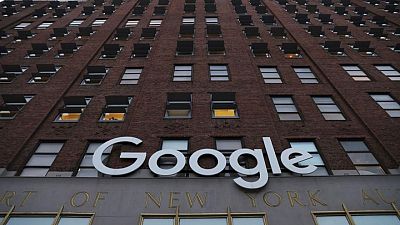Online privacy protection NGO Noyb is bringing websites that don’t respect personal data to book over alleged rule breaches.
The online privacy protection watchdog Noyb filed more than 400 complaints on Tuesday against websites across Europe following what they describe as "breaches" of cookie rules.
At the end of May, the Austrian NGO had put 516 companies on notice, giving them a month to comply with the EU’s data protection, or GDPR, regulations
"According to the law, the ‘yes/no’ option to cookies must clearly be offered to users," said Noyb, an acronym for "None of your business".
"However, it is often extremely complicated to click on something other than the accept button".
The NGO said it had noted "some Improvements" since its complaints had been lodged, with nearly half of the flagged irregularities having been corrected.
Yet many sites have added a reject button or have ceased to use different colours, a trick that encourages Internet users to click on the accept button.
"Big names like Seat, Mastercard or Nikon have instantly changed their practices", said Max Schrems, head of Noyb, but added that the situation is still far from ideal.
It decided to complain about 422 cases to national authorities where possible and to Austrian ones for the remaining cases.
So far, most sites are reluctant to give Internet users the possibility of easily reconsidering their choice, according to the NGO.
Google and Facebook targeted
Activists also point out that digital giants like Google and Facebook continue to fail to implement the rules while cookies allow them to personalise advertisements according to the tastes and habits of consumers.
The NGO launched an additional 36 procedures against them.
"There is a trend that larger players and pages that are very dependent on advertisement largely ignored our offer to settle cases," Noyb said.
"Some openly argue that it would be legal to manipulate users into clicking ‘okay’. We will obviously bring cases here as well".
The NGO says it intends to comb through "up to 10,000 sites" over the next few months, in the hope of ending this "terror of cookie banners".
Statistics published in May show that only 3 per cent of Internet users are prepared to accept cookies, but that more than 90 per cent are pushed to say yes because they cannot easily be rejected.
The National Commission for Informatics and Liberties (CNIL), France’s online data privacy watchdog, has launched a similar offensive to force websites to comply with the law.
What does it really mean to accept cookies?
Cookies are text files with small pieces of data that are used to identify your computer as you use a computer network.
They personalise your browsing experience by allowing your favourite websites to recognise you when you return, just like a restaurant server remembers your preferences over the course of your visits.
Thanks to cookies, the website is tailored to your interests and needs.
Likewise, cookies save you a lot of time and effort in saving your data so that you don't have to re-enter all your information each time you log in.
While on one hand, cookies make life on the Internet much easier, their use is highly contested.
Users’ data is an increasingly valuable resource and the methods for collecting it are becoming more and more sophisticated.
The more companies know about their users, the better they can target them in order to sell them products and maximise profits.
By combining user data - such as your age, gender, and location - with tracking your digital activity, search engines and websites can identify and segment users with increasing precision.
This fine-grained user segmentation influences every aspect of your browsing experience, from the advertisements shown to you to your search results.



